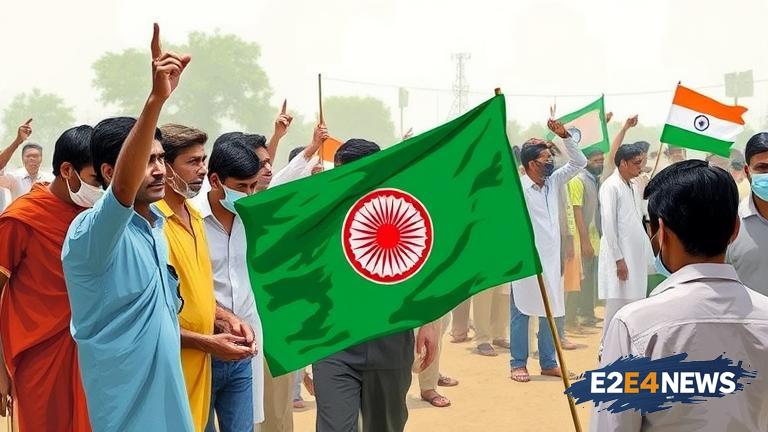A controversy has erupted in Assam, India, after a prominent activist made a statement suggesting that Bangladeshis can live in the state. The remark has sparked a heated debate over the citizenship status of Bangladeshis living in Assam, with many opposing the idea. The activist’s comment has been met with widespread criticism, with many arguing that it is not feasible for Bangladeshis to live in Assam without proper documentation. The issue of citizenship has been a sensitive topic in Assam, with many indigenous communities expressing concerns over the influx of immigrants from Bangladesh. The state has a long history of immigration, with many Bangladeshis crossing the border to settle in Assam. However, the lack of proper documentation and the fear of cultural and demographic changes have led to tensions between the indigenous communities and the immigrant population. The activist’s remark has been seen as an attempt to downplay the concerns of the indigenous communities and to promote a more inclusive approach to citizenship. However, many have argued that such an approach would be detrimental to the cultural and social fabric of Assam. The controversy has highlighted the need for a more nuanced approach to citizenship and immigration in Assam, one that takes into account the concerns of all stakeholders. The Indian government has been criticized for its handling of the issue, with many arguing that it has failed to provide a clear and effective solution to the problem. The opposition parties have been quick to capitalize on the controversy, with many leaders criticizing the government’s approach to citizenship and immigration. The issue has also sparked a debate over the role of activism in shaping public discourse, with many arguing that activists should be more mindful of the potential consequences of their words. The controversy has also highlighted the need for greater awareness and understanding of the complexities of citizenship and immigration in Assam. The state government has been urged to take a more proactive approach to addressing the concerns of the indigenous communities, while also ensuring that the rights of all citizens are protected. The issue is likely to continue to be a major point of contention in the coming days, with many calling for a more nuanced and inclusive approach to citizenship and immigration. The controversy has also sparked a wider debate over the role of social media in shaping public discourse, with many arguing that it has contributed to the spread of misinformation and hate speech. The need for greater regulation of social media has been highlighted, with many arguing that it is essential to prevent the spread of harmful and divisive content. The controversy has also highlighted the importance of promoting greater understanding and empathy between different communities, with many arguing that it is essential to build bridges and foster greater cooperation. The issue of citizenship and immigration is complex and multifaceted, and it requires a nuanced and inclusive approach that takes into account the concerns of all stakeholders. The controversy has sparked a wider debate over the future of Assam and the role of citizenship and immigration in shaping its social and cultural fabric. The state government has been urged to take a more proactive approach to addressing the concerns of the indigenous communities, while also ensuring that the rights of all citizens are protected. The controversy has also highlighted the need for greater awareness and understanding of the complexities of citizenship and immigration in Assam, and the need for a more nuanced and inclusive approach to addressing the issue.
